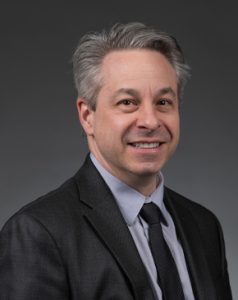Being the caregiver for a sick loved one can be both rewarding and exhausting. It can be a way to give back to a parent who is now in need, or maybe it becomes fulfillment of vows said long ago. Whatever the circumstance, it can be easy to get so caught up in their care that the caregiver starts to suffer. Mental, physical and spiritual fatigue can occur when the caregiver neglects his or her own self-care.
Douglas Fronzaglia, D.O., of LECOM Institute for Successful Living – Schaper, encourages caregivers to stay healthy and take advantage of available services to avoid caregiver fatigue.
Caregivers need care, too
Caregivers volunteer with good intentions to help loved ones, altruism to the end. But what happens when caregiver fatigue sets in, or the caregiver’s own health starts to deteriorate? Now one patient has become two, and there is no care whatsoever.
I like to have couples in my practice so I can ask them both how it’s going. I encourage them to get some home health to offer them a break.
We all mean well, but if the caregiver can’t take care of the person in the capacity they wish, they aren’t going to be take care of them at all.
Recognizing this is absolutely essential.
Caregiver fatigue is now recognized as a geriatric syndrome because it’s an extension of the patient care.
What services are available to assist caregivers?
 Services are always available to take some of the burden off the caregiver.
Services are always available to take some of the burden off the caregiver.
Options are:
- Ask a friend
- Home health
- Respite stay at a personal care facility or hospital
- Hospice
What is hospice and how can it help caregivers?
Many patients are hospice appropriate. Just because they’re on hospice doesn’t mean they’re going to die in six months or a year. It just means they have a terminal state for which death is going to be the ultimate outcome. However, it doesn’t place a time limit on them.
If you require a caregiver, you’re probably terminal. Is it months? Is it years? That’s up to the individual case. But hospice provides services above and beyond what a home health typically can do, and it’s a very underutilized Medicare benefit.
Hospice takes over the majority of care, especially diagnosis related. Patients can still come to see their primary care physician if they’re mobile, or participate in telemedicine.
By and large, the hospice organization will, at their weekly team meeting, come up with a revised care plan week by week. Their medical director physician will direct how care is going.
This takes a huge burden off the caregiver. At this point, it’s no longer your job to care for your loved ones; it’s your job to enjoy them and their quality of life, together, until the very end whether that’s a month, or a year or two.

Call (814) 866-2311 to schedule an appointment with Dr. Fronzaglia at LECOM Institute for Successful Living – Schaper.
